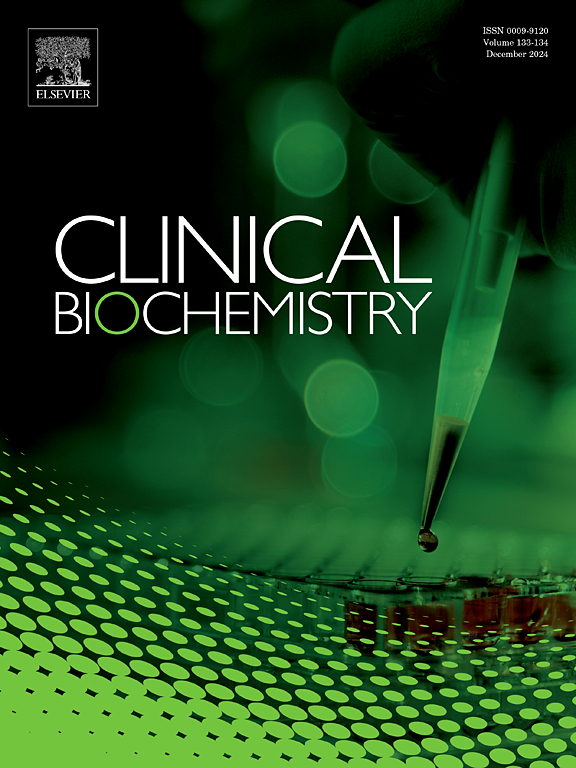Waste management and environmental health impact: sustainable laboratory medicine as mitigating response
IF 2.1
3区 医学
Q2 MEDICAL LABORATORY TECHNOLOGY
引用次数: 0
Abstract
Unregulated and unsustainable human, industrial, and scientific activities generate various forms of waste which contribute immensely to the current rising global, multifaceted environmental health challenges. Laboratory medicine practices continue to be a key contributor to this menace with continuous generation of waste ranging from hazardous chemicals and toxic heavy metals to pathogenic biological waste, all of which pose significant risks to environmental and public health. While the wider scientific community has made significant attempts to adopt sustainable practices aligned with the United Nations Sustainable Development Goals, the laboratory medicine sector has lagged behind in implementing effective waste management strategies, particularly in developing countries, highlighting the need for targeted sustainable laboratory medicine practices. This review analysed relevant existing literature on the impact of laboratory waste on environmental health and explored sustainable laboratory medicine as a potential mitigating approach. The findings revealed that inefficient waste management significantly contributes to environmental degradation. Implementing sustainable laboratory (also known as green laboratory) practices such as use of eco-friendly materials, energy-efficient protocols, resource conservation, innovative waste minimisation, and treatment technologies appears to be a crucial framework that will mitigate the threat posed by laboratory-derived waste on environmental health. The review emphasised the need for a paradigm shift towards sustainable laboratory practices, advocating for comprehensive training, institutional commitment, and regulatory support to mitigate the environmental health impacts of laboratory-generated waste. This will ensure that laboratory medicine continues to advance without compromising public health or the planet.
废物管理和环境健康影响:作为缓解对策的可持续实验室医学。
不受管制和不可持续的人类、工业和科学活动产生各种形式的废物,极大地加剧了当前日益严重的全球性、多方面的环境卫生挑战。实验室医学实践仍然是造成这一威胁的一个主要因素,从危险化学品和有毒重金属到致病性生物废物等各种废物不断产生,所有这些都对环境和公众健康构成重大风险。虽然更广泛的科学界为采用符合联合国可持续发展目标的可持续做法做出了重大努力,但实验室医学部门在实施有效的废物管理战略方面落后,特别是在发展中国家,这突出表明需要有针对性的可持续实验室医学做法。本综述分析了实验室废弃物对环境健康影响的相关现有文献,并探讨了可持续实验室医学作为一种潜在的缓解方法。研究结果显示,废物管理效率低下严重加剧了环境退化。实施可持续的实验室(也称为绿色实验室)做法,如使用生态友好材料、节能协议、资源保护、创新的废物最小化和处理技术,似乎是一个关键框架,将减轻实验室产生的废物对环境健康构成的威胁。该审查强调需要将模式转向可持续的实验室做法,倡导全面培训、机构承诺和监管支持,以减轻实验室产生的废物对环境健康的影响。这将确保实验室医学在不损害公共卫生或地球的情况下继续发展。
本文章由计算机程序翻译,如有差异,请以英文原文为准。
求助全文
约1分钟内获得全文
求助全文
来源期刊

Clinical biochemistry
医学-医学实验技术
CiteScore
5.10
自引率
0.00%
发文量
151
审稿时长
25 days
期刊介绍:
Clinical Biochemistry publishes articles relating to clinical chemistry, molecular biology and genetics, therapeutic drug monitoring and toxicology, laboratory immunology and laboratory medicine in general, with the focus on analytical and clinical investigation of laboratory tests in humans used for diagnosis, prognosis, treatment and therapy, and monitoring of disease.
 求助内容:
求助内容: 应助结果提醒方式:
应助结果提醒方式:


